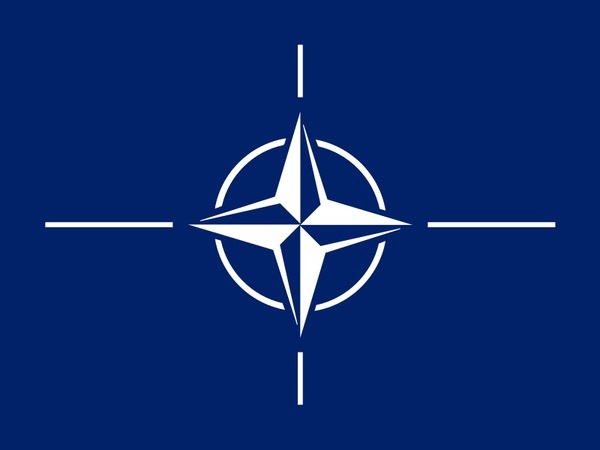
(function(d, s, id) { var js, fjs = d.getElementsByTagName(s)[0]; if (d.getElementById(id)) return; js = d.createElement(s); js.id = id; js.src = “https://connect.facebook.net/en_US/sdk.js#xfbml=1&version=v3.0”; fjs.parentNode.insertBefore(js, fjs); }(document, ‘script’, ‘facebook-jssdk’)); –>
–>
February 20, 2024
As he is wont to do, Donald Trump caused heads to explode among the American political establishment and legacy media when he recalled an encounter he had with an unnamed president “of a big country” regarding the North Atlantic Treaty Organization (NATO). In Trump’s telling, the leader asked him, “Well sir, if we don’t pay and we’re attacked by Russia, will you protect us?” Trump answered by saying: “No, I would not protect you. In fact, I would encourage them to do whatever the hell they want. You gotta pay.”
‘); googletag.cmd.push(function () { googletag.display(‘div-gpt-ad-1609268089992-0’); }); document.write(”); googletag.cmd.push(function() { googletag.pubads().addEventListener(‘slotRenderEnded’, function(event) { if (event.slot.getSlotElementId() == “div-hre-Americanthinker—New-3028”) { googletag.display(“div-hre-Americanthinker—New-3028”); } }); }); }
Almost immediately an avalanche of shopworn accusations of Trump being a Putin sycophant determined to surrender Europe to the tender mercies of a rampaging Russia filled the airwaves and saturated the internet allowing the Democrats and their mouthpieces in the legacy media to reprise the long-debunked Russia collusion hoax of 2016-17.
Apparently, Trump also stunned many European leaders and much of the European media. So much so that the New York Times ran an article titled “An Outburst by Trump on NATO May Push Europe to Go It Alone” as more European leaders are now quietly discussing among themselves how they might prepare for the possibility that America removes itself from being the centerpiece of the alliance.
The leaders of Europe are finally beginning to understand the views of a majority of Americans who are increasingly concerned about the seemingly endless litany of near-intractable domestic crises, the skyrocketing national debt, and the dire future of the United States.
‘); googletag.cmd.push(function () { googletag.display(‘div-gpt-ad-1609270365559-0’); }); document.write(”); googletag.cmd.push(function() { googletag.pubads().addEventListener(‘slotRenderEnded’, function(event) { if (event.slot.getSlotElementId() == “div-hre-Americanthinker—New-3035”) { googletag.display(“div-hre-Americanthinker—New-3035”); } }); }); }
In a recent Pew poll, 55% of Americans say that the U.S. should pay less attention to problems overseas and concentrate on problems at home while 43% say the U.S. should be active in world affairs.
History has shown that once the stated purpose of a military alliance no longer exists that alliance must be either dramatically altered or disbanded, or it will assume other purposes that inevitably leads to chaos. The hierarchy of NATO is now promoting the globalist version of DEI (Diversity, Equity, and Inclusion) as the guiding policy of the alliance.
As part of that shift, they have taken the position that first line of defense is no longer a military one but censoring and controlling the free citizens of the member states in order to make certain that “disinformation” does not affect the “proper outcome” of elections among the nations of NATO.
Through NATO, America has been the primary military protector of Western Europe for 75 years. Over that period of time America’s direct expenditures (military footprint, surveillance, and military aid) within Europe has amounted to approximately $4.0 Trillion (in 2024 dollars) in addition to the nuclear umbrella and naval forces of the United States which have protected the nations of Europe for three-quarters of a century.
NATO and these expenditures were a necessity when a nuclearized and an aggressively belligerent Soviet Union was the major threat to global peace, but that threat ended in 1991.
 The original purpose of NATO no longer exists, and the alliance has abandoned its founding principles. Therefore, once the inevitable negotiated settlement of the war in Ukraine occurs, and if Trump is President, he must inform the countries of Europe that United States will, over a three-year timeline, exit its active participation in NATO by removing its military presence from the continent and initiating a new limited membership in the alliance, forcing the European nations of NATO to reform the alliance and take seriously their responsibility to protect their interests.
The original purpose of NATO no longer exists, and the alliance has abandoned its founding principles. Therefore, once the inevitable negotiated settlement of the war in Ukraine occurs, and if Trump is President, he must inform the countries of Europe that United States will, over a three-year timeline, exit its active participation in NATO by removing its military presence from the continent and initiating a new limited membership in the alliance, forcing the European nations of NATO to reform the alliance and take seriously their responsibility to protect their interests.
‘); googletag.cmd.push(function () { googletag.display(‘div-gpt-ad-1609268078422-0’); }); document.write(”); googletag.cmd.push(function() { googletag.pubads().addEventListener(‘slotRenderEnded’, function(event) { if (event.slot.getSlotElementId() == “div-hre-Americanthinker—New-3027”) { googletag.display(“div-hre-Americanthinker—New-3027”); } }); }); } if (publir_show_ads) { document.write(“
The key factors in canceling active participation in NATO are 1) grossly unbalanced financial commitments, 2) radical policy positions, and 3) the obligations the United States has assumed under the NATO Charter, namely Article 5 which states:
The parties agree that an armed attack against one or more of them in Europe or North America shall be considered an attack against all of them and consequently they agree that if such an armed attack occurs each of them… will assist the Party or Parties so attacked by taking… such action as it deems necessary, including the use of armed forces, to restore the security of the North Atlantic area.
Because of Article 5, the United States cannot avoid becoming involved in either refereeing or actively participating in any military or security squabbles among the countries in Europe. Therefore, after America’s announcement ceasing active participation in NATO, Article 5 should be amended as follows:
The parties agree that an armed attack against one or more of them in Europe shall be considered an attack against all of them and consequently they agree that if such an armed attack occurs each of them will assist the Party or Parties so attacked with the understanding that the participation of the United States and the use of its armed forces will be subject to approval by the Congress of the United States.
The process of amending the charter should have begun after the unprecedented collapse and fragmentation of the Soviet Union in 1991 and accelerated in 1993 when the European Union, with unified economic, social, and security policies, came into being. It was the ideal political vehicle for Europe to assume the burden of self-defense after the collapse of the Soviet Union.
The European Union plus Great Britain has a population three and half times larger (512 million vs. 144 million) and a Gross Domestic Product nearly ten times larger ($20.0 Trillion vs $2.2 Trillion) that of Russia.
European duplicity combined with the American political class’s need to have an evil foreign adversary to pillory has kept an American-dominated NATO alive long past its expiration date. In their myopia, the global elites redefined NATO’s original purpose by not only expanding but conferring what was once a justifiable fear of the Soviet Union upon its significantly smaller and far less formidable successor, Russia.
Since 1991, NATO has expanded to 31 nations by adding 15 new members. All, with the exception of Finland, were formerly independent nations occupied by the Soviet Union including some which border on Russia. Perhaps understandably, Russian paranoia was dramatically exacerbated.
This centuries-old paranoia, the demonization by the American ruling elites, the threat of allowing former Soviet Republics, such as Ukraine, to join NATO, combined with rampant internal corruption, undermined Russia’s democratization efforts and led to the ascension of a new Russian autocratic oligarchy led by a brutal and megalomaniacal Vladimir Putin as exemplified by his ruthlessness within Russia and the invasion of Ukraine.
In 2008, the United States and NATO duplicitously agreed to add Ukraine as a member of NATO. There were also overt discussions in June of 2021 between the Biden Administration and Volodymyr Zelensky about Ukraine joining NATO. In reality, Ukraine was never going to be allowed to join NATO.
If the United States and NATO had been honest with the Ukrainians about their actual intention of never allowing them to join NATO and subsequently armed them with sufficient weaponry to thwart a potential invasion, war could have been avoided.
The years-long mating dance between NATO and Ukraine was the pretext and Joe Biden’s disastrous surrender and withdrawal from Afghanistan was the catalyst that precipitated Putin’s fateful decision to invade Ukraine.
After twenty-four months, the death of untold thousands on both sides, and a stalemate reminiscent of World War I, Russia has been exposed as a military paper tiger with only its nuclear arsenal and immense fossil-fuel reserves propping it up as a major player on the international scene. Ukraine has been exposed to be what it has aways been since its independence from the Soviet Union: a nation with a quasi-authoritarian government rife with unbridled corruption.
The nations of Europe are fully capable of dealing with Russia and other European security matters. The United States must focus on its nearly-intractable domestic problems and a far greater global threat than Russia: Communist China.
Image: NATO
<!–
–>
<!– if(page_width_onload <= 479) { document.write("
“); googletag.cmd.push(function() { googletag.display(‘div-gpt-ad-1345489840937-4’); }); } –> If you experience technical problems, please write to [email protected]
FOLLOW US ON
<!–
–>
<!– _qoptions={ qacct:”p-9bKF-NgTuSFM6″ }; ![]() –> <!—-> <!– var addthis_share = { email_template: “new_template” } –>
–> <!—-> <!– var addthis_share = { email_template: “new_template” } –>





